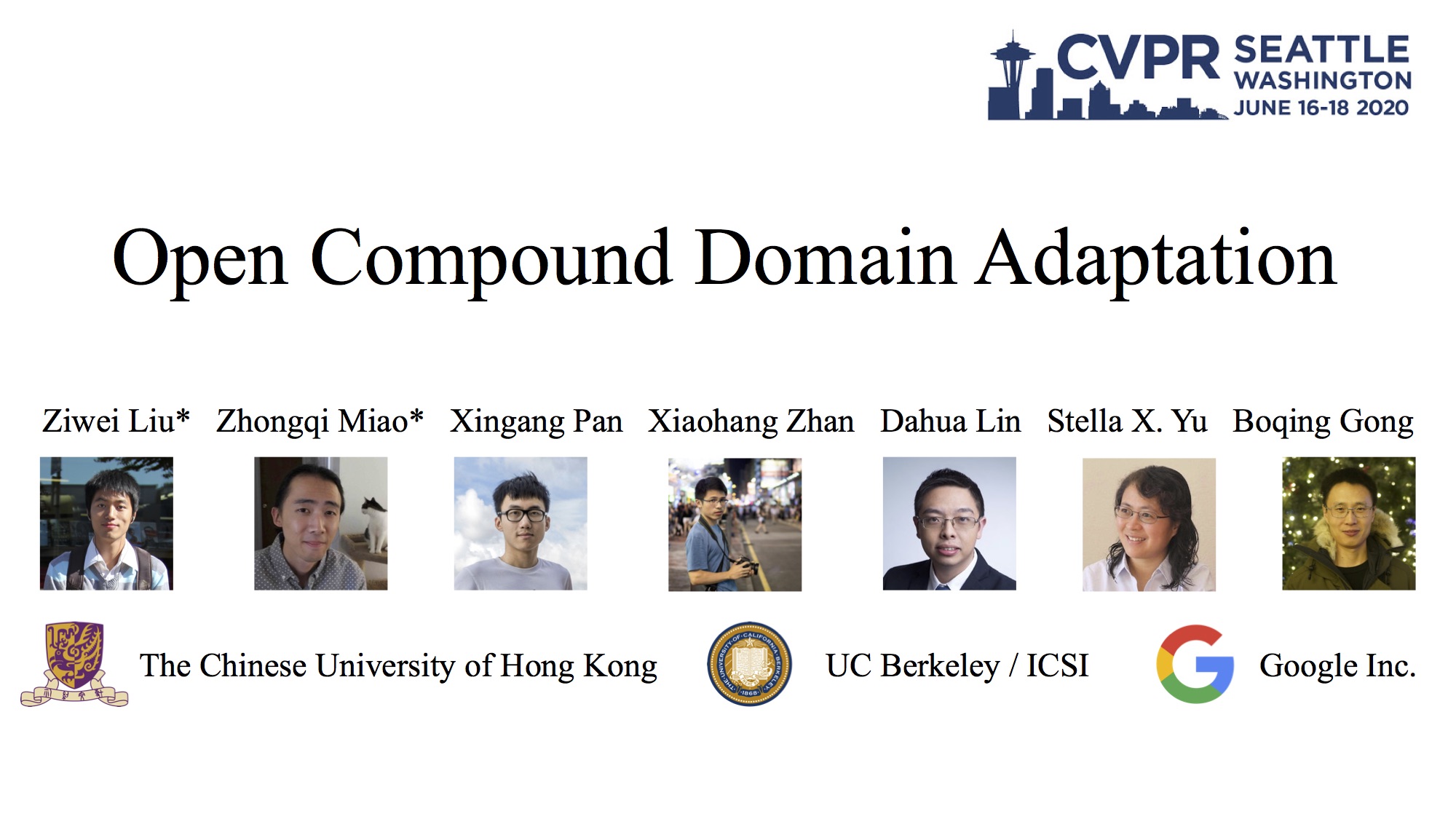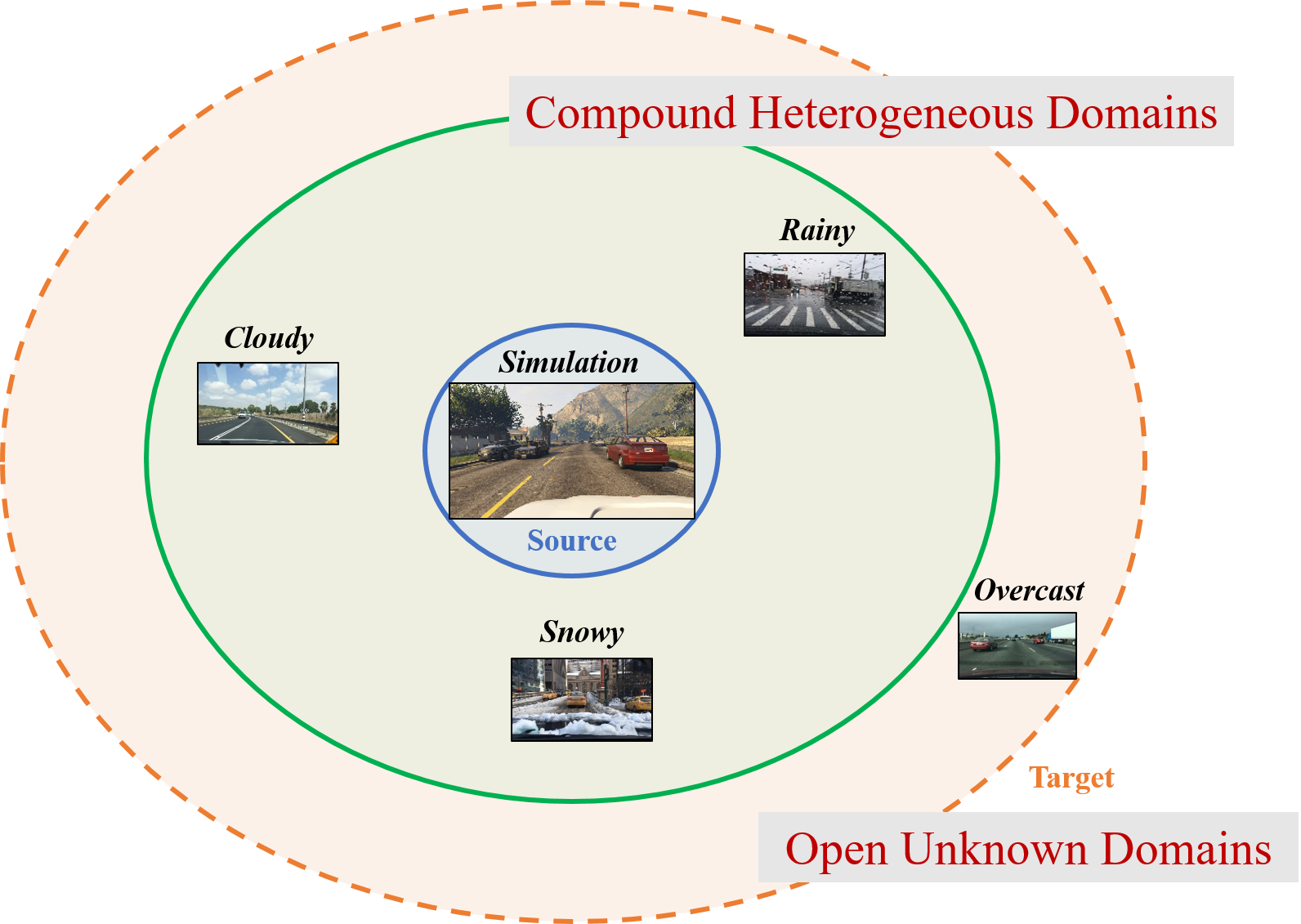Open Compound Domain Adaptation

Abstract
A typical domain adaptation approach is to adapt the model trained on the annotated data in a source domain (e.g. sunny weather) for the test data in a target domain (e.g. rainy weather). Whether the target contains a single or multiple domains, existing works always assume that there is a known clear distinction between domains, which is often not true in practice (e.g. mixed or varying weather). We consider the open compound domain adaptation (OCDA) problem, in which the compound target domain is a combination of multiple traditional target domains without domain labels, reflecting realistic data collection in various mixed as well as novel conditions. Our model consists of two technical insights into OCDA: 1) a curriculum domain adaptation strategy to bootstrap generalization across domain distinction in a data-driven self-organizing fashion and 2) a memory module to increase the model's agility towards novel domains. Our experiments on digit classification, facial expression recognition, semantic segmentation, and reinforcement learning demonstrate the effectiveness of our approach.
Public Video
Presentation
Code and Models
Paper Video
Citation
@inproceedings{compounddomainadaptation,
title={Open Compound Domain Adaptation},
author={Liu, Ziwei and Miao, Zhongqi and Pan, Xingang and Zhan, Xiaohang and Lin, Dahua and Yu, Stella X. and Gong, Boqing},
booktitle={IEEE Conference on Computer Vision and Pattern Recognition (CVPR)},
year={2020}
}






